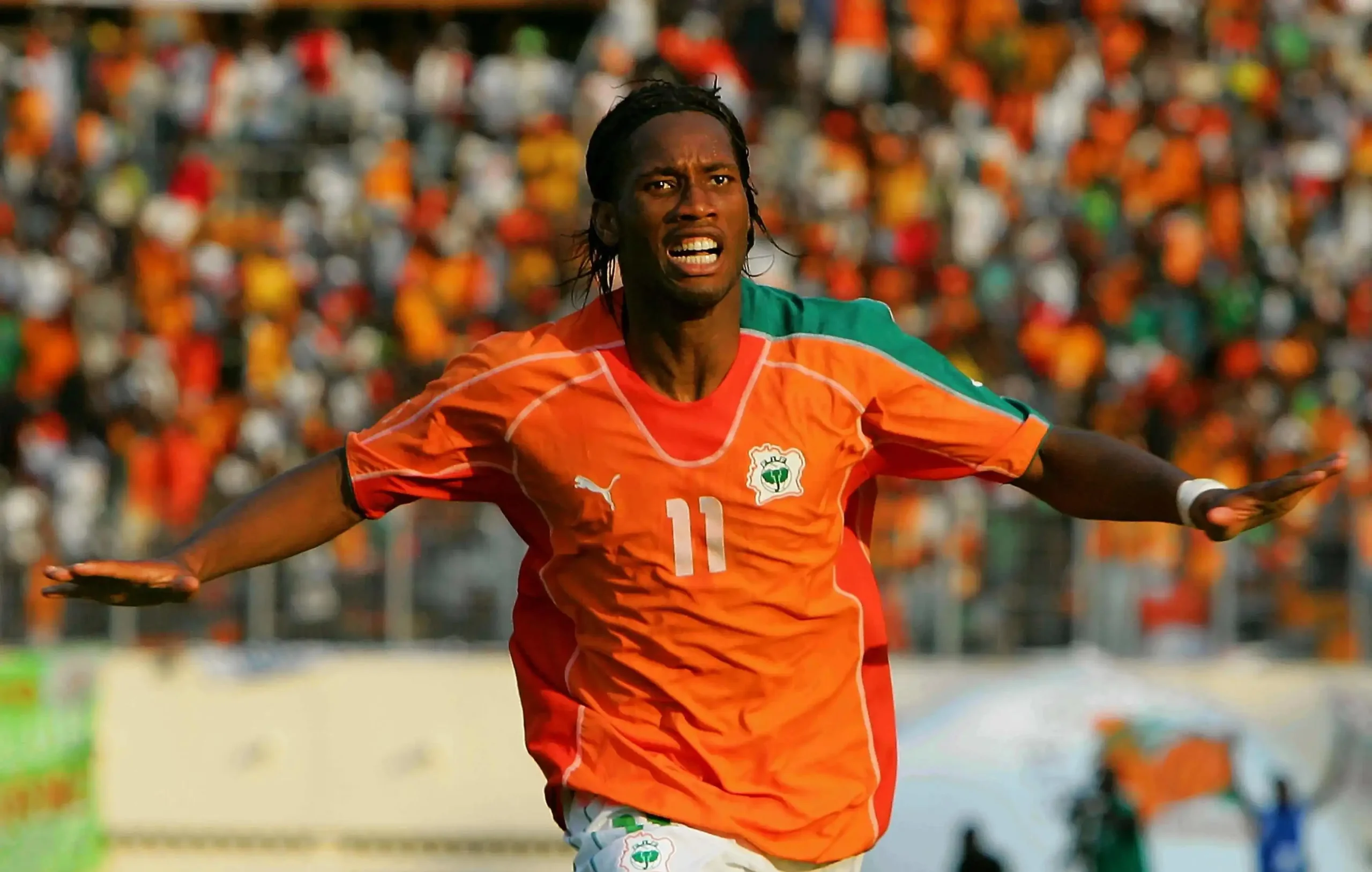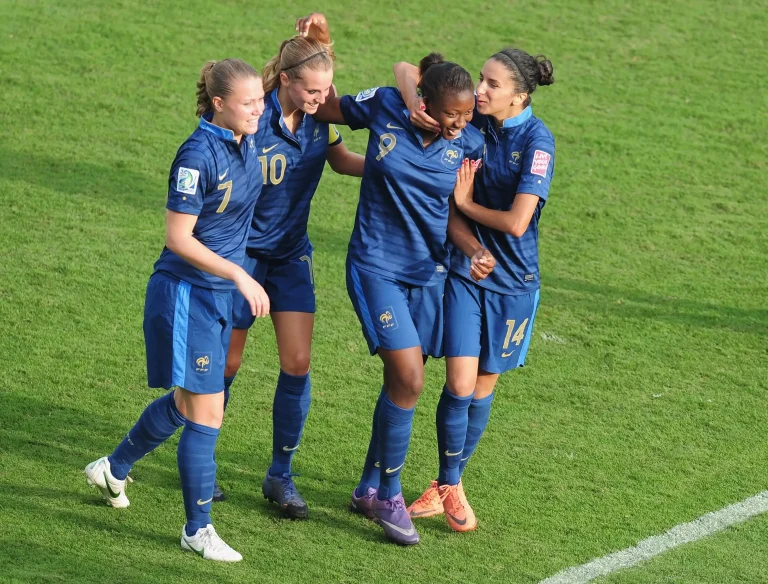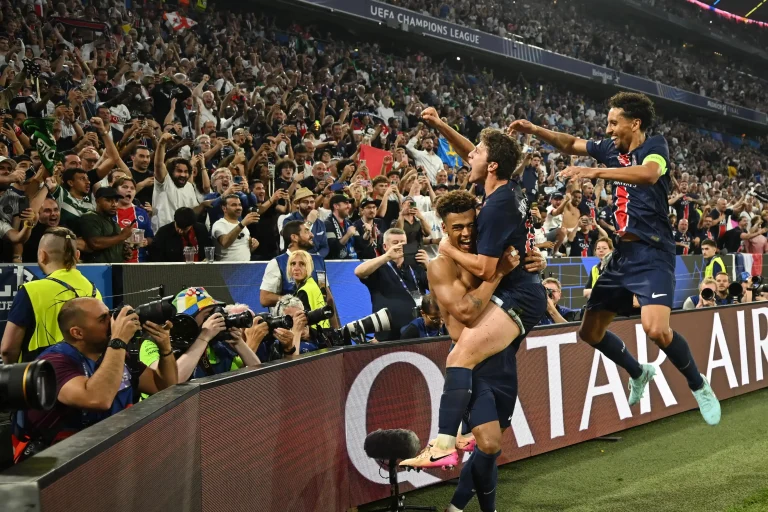CAF QUALIFYING | FIFA World Cup 26™
Bernard Goosen had just made waves for scaling Mount Kilimanjaro in a wheelchair. Angola and Togo needed to do the footballing equivalent if they were to climb the continent and reach the 2006 FIFA World Cup Germany™.
When African qualifying began in October 2003, they were 85th and 89th on the FIFA/Coca-Cola World Ranking. Sixteen African teams sat to their north. Only five tickets to the 18th global finals were up for grabs.
Both needed to rally from behind to reach the second round. Angola lost their first leg 3-1 to Chad, but unanswered efforts from Akwa and Bruno Mauro in Luanda sent them through on away goals. Togo fell 1-0 in Equatorial Guinea, but Emmanuel Adebayor and Moustapha Salifou turned it around in Lome.
The draw for the second round, held in Frankfurt, one of the 12 host cities for the finals, didn’t smile towards the Black Sable Antelopes or the Sparrowhawks. The former fell into Group 4. Nigeria, chasing a fourth consecutive World Cup, were the overwhelming favourites to clinch its ticket to Germany. If anyone could stop them, it was Algeria or Zimbabwe. Angola, Gabon and Rwanda were there to make up the numbers.
Senegal, who had wowed the sport at Korea/Japan 2002, where a golden goal denied them a glamour semi-final against Brazil, were widely expected to win Group 1. Mali and Zambia were seen as their only, albeit unlikely, threats. Nobody gave Togo a shot.
The odds on Côte d’Ivoire making it weren’t much better. Sixty-first on the global ladder when the CAF preliminaries began, they had African titans Cameroon and Egypt for company in Group 3.
Angola, Côte d’Ivoire and Togo hadn’t even qualified for the following year’s AFCON. What chance did they have of reaching a first World Cup?
“Honestly, we didn’t think we had a chance at the start of qualifying,” conceded Angola full-back Lebo Lebo, whose coach Luis Oliveira Goncalves had been unsuccessful in persuasion pleas to Rio Mavuba and Nando Rafael. “Nigeria were a world force. They had great players like Jay-Jay Okocha, Kanu, Yakubu, [Vincent] Enyeama, [Joseph] Yobo.”
Adebayor admitted an address from coach Stephen Keshi left the Togo players incredulous: “Before our first game, he gathered us together and said, ‘Lads, I didn’t come here to go to the AFCON. I want us to play at the World Cup.’ We looked at each other and said, ‘What’s he on about? Togo at the World Cup? Has he seen the teams we’ll be up against? (laughs) We’ve got Senegal, who just took part in a World Cup where they beat world and European champions France, and he sees us going to Germany. No, it’s impossible.”
Yet, especially indebted to the exploits of Adebayor, Akwa and Didier Drogba, the three underdogs held hope of publishing a fairy tale going into the final matchday, 20 years ago today. Togo required a point to get over the line. Angola needed to equal Nigeria’s result. Côte d’Ivoire had to win and hope Cameroon didn’t.
Adebayor equalised just before half-time in Brazzaville, but with Senegal cruising to victory, the Monaco man let rip in the dressing room.
“I spoke up and said to the team, ‘After all our efforts, we can’t now be eliminated like this,” Adebayor recalled to FIFA. “If we end up not qualifying, I’ll never forgive myself and I’ll never forgive you either. The game restarted and Congo scored again. We were losing 2-1, and Germany was getting further and further away for us.”
Fortunately, Mohamed Kader listened to Adebayor’s words. He hadn’t just changed one of his boots, which had torn, during the break, but had also slipped into a superhero’s cape. The Sochaux striker bagged a quick-fire brace and booked the Togolese a World Cup place.
“It was like a film,” recalled Adebayor. “Togo is one of the smallest countries in Africa, but we’d qualified for the World Cup. Incredible. Never a day goes by without people from Togo talking to me about that achievement. They remember where they were, who they were with and how they celebrated our qualification. That’s how proud they were of us and, above all, of being Togolese.”
Nigeria’s 5-1 thumping of Zimbabwe meant that Angola had to win. With 19 million Angolans on the devastation cusp, Akwa’s header sparked ecstasy.
“It was the biggest party in Angola since independence,” said Oliveira Gonçalves. “It was crazy. The joy was indescribable. You cannot understand what it meant to Angolans. You cannot understand the pride that Angolans had that they wouldn’t have to support Brazil or Portugal or Argentina or France but Angola!”
Côte d’Ivoire took care of their own business, an Aruna Dindane double inspiring victory at Sudan. Upon the final whistle in Omdurman, Kolo Toure, Emmanuel Eboue, Drogba and Co rushed to gather around a radio. An emotional roller coaster ensured. They were ecstatic to hear Egypt were drawing 1-1 in Yaounde, shattered to hear Cameroon were awarded a 94th-minute penalty, and remarkably relieved and rapturous when Pierre Wome smacked it against the post with what proved to be the last kick of the contest.
Drogba grew up idolising Pele and Muhammad Ali, and now he would get to emulate the former by playing on sport’s biggest stage – and by halting bloodshed. ‘The King’ playing a football match in Lagos and preposterously brought the Nigerian civil war to a ceasefire in the 1960s. ‘The African King’, surrounded by team-mates, everyone on their knees, delivered an uber-emotional speech, broadcast live on Ivorian television, that ultimately brought the Ivorian civil war to an end.
‘The Beautiful Game’ was also a beast, more powerful than the six-punch combination Ali had used to KO George Foreman in Africa. Côte d’Ivoire, along with Angola and Togo, had muscled the right to rumble in the footballing jungle.
Further reading
Emmanuel Adebayor interview
El Hadji Diouf interview



